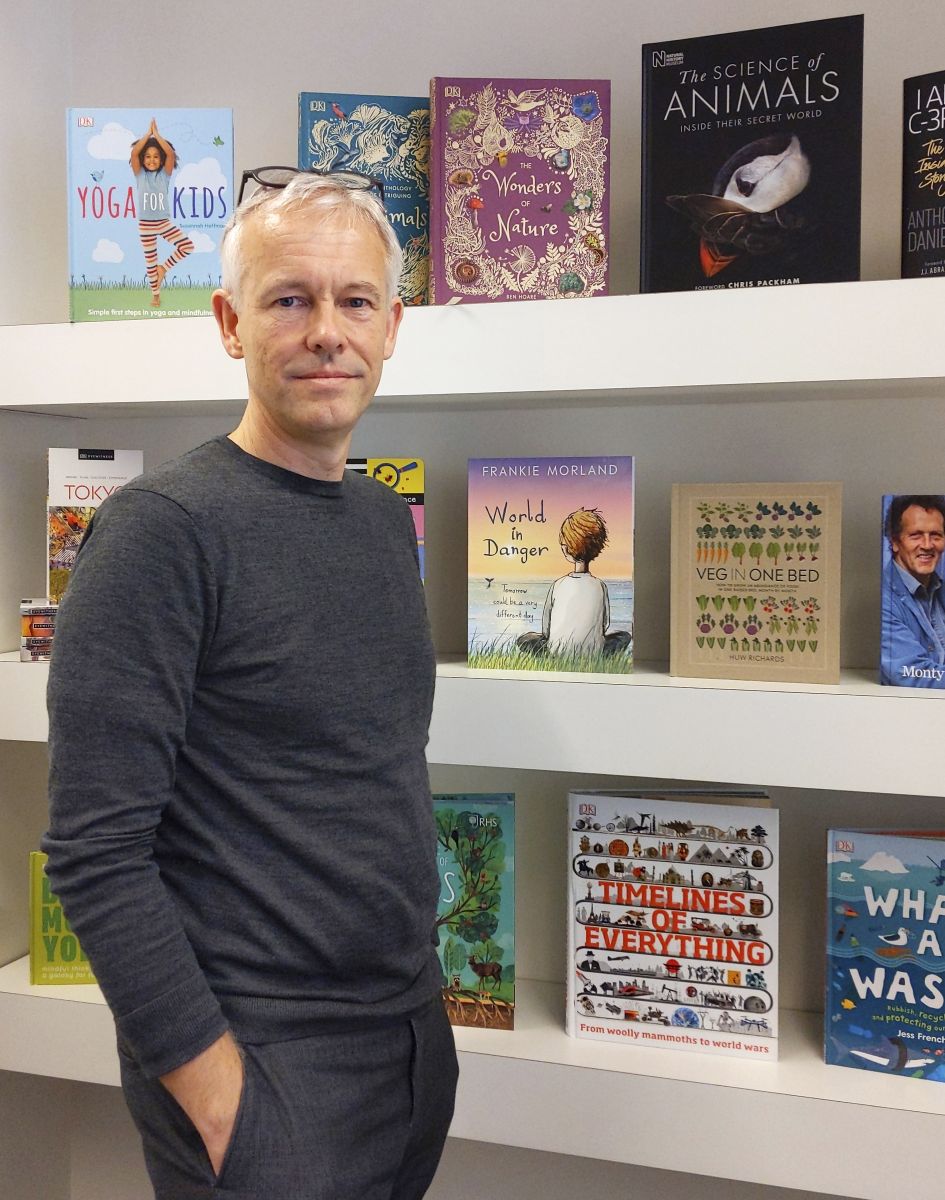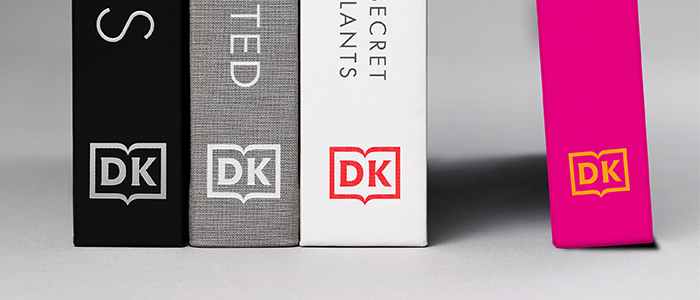You are viewing your 1 free article this month. Login to read more articles.
DK unveils rebrand for modern market after revitalised results under Hudson
The esteemed non-fiction publisher launched a rebrand this week, having been quietly updating its offer to consumers both local and global under c.e.o. Ian Hudson
DK has unveiled a major brand redesign, swapping its logo for a sleeker, more modern iteration for the digital age and introducing a new strapline: “For the curious”.
 But it’s not just its branding that has been evolving. DK has been changing “quietly but quite significantly and inexorably”, according to c.e.o. Ian Hudson (pictured), under whom the once loss-making company has now enjoyed three consecutive years of profitability.
But it’s not just its branding that has been evolving. DK has been changing “quietly but quite significantly and inexorably”, according to c.e.o. Ian Hudson (pictured), under whom the once loss-making company has now enjoyed three consecutive years of profitability.
Introducing “new DK”, which seeks to “entertain and inspire”, Hudson explained that since he took the helm three and a half years ago, editors have been given freedom to break “old rules” and encouraged to take more risks in pursuit of a broader audience.
“We have deliberately been a bit quiet about it,” said Hudson, “because when you have a publisher and a list that is well known for its qualities, you want to protect what is really strong, so you change what [you might do to] modernise it and bring it forward. But it takes years for people to notice because you have to have a few years of publishing before the books on the shelves are consistent in quality and in the way they are appreciated.”
In addition to being “cleaner, sharper and less dense” in terms of text, DK’s books, which were once heavily photographic, now use more illustration and often blend this with photography, as in its The Wonders of Nature. DK previously didn’t really do black and white books, either; yet its monochrome Down to Earth, created with Monty Don, has sold 200,000 copies internationally.
The Don title was also its first new auhtor-led commission for a while. Used to publishing for a global audience (the UK accounts for less than 20% of its market), DK had stopped commissioning authors. But recently it has commissioned all kinds of books, publishing more local titles and diversifying its offer in autobiography, lifestyle and humour—see Huw Richards’ Veg in One Bed, Chris Bavin’s Fakeaways and Be More Yoda, all atypical of old DK.
“When I arrived [I thought], there are so many talented people here, full of ideas, limited by ‘it needs to be photographic’ and this idea that you can’t commission an author,” said Hudson. “[Now,] if you have an idea for a book that would really sit well with a top author, you can approach them and say, ‘We’ve got this amazing idea for you, what do you think?’ Then you’re engaging with them and you don’t have to pay silly money at auctions [for books]. You can work with an author and combine expertise; instead of them feeling they have to deliver everything or us doing it ourself, you can work as a team.”
Hudson admitted the company had “harder times”. The licensing market has been “tough”, and Brexit has been “a key factor” in the reduction of sales of its travel guides. “When I arrived at DK we had to make some tough decisions,” said Hudson. Travel list Rough Guides was sold to APA in 2017, and gaming strategy list Prima Games shuttered in 2018.

But at the same time, DK set up a consumer insight department and recruited a new team. And, although licensing sales have been falling, growing for DK has been children’s, its core knowledge titles and lifestyle. Its sales in the UK in 2019 through the TCM grew 5% to £27.5m, but according to DK total sales in the UK were up 10%. It also says that in China, which accounts for almost 15% of its market, sales are up 42%, with German sales up 8% and US trading “strong” and “steady” after “significant growth” in 2018.“DK had some challenging times. We’ve bounced back: our underlying sales have grown, we are profitable again, and we have a real ambition to grow our publishing and grow the company. We have the confidence now to be able to come out and say, ‘Here we are’.”














